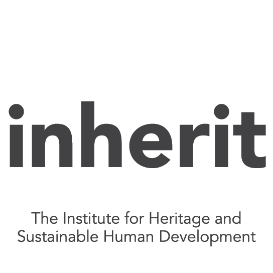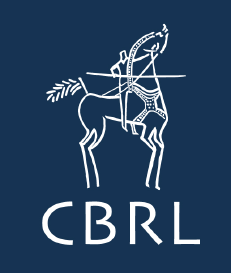

The Project
Research (in Lebanon, in Jordan and elsewhere)
Our aim is to enable Bedouin communities to safeguard their heritage and to promote its value to society and the environment. Participatory research is fundamental to meeting this aim.
The focus of the research is Bedouin intangible cultural heritage, particularly the heritage associated with their historic routes throughout the Middle East. These routes were established through repeated use over time, as Bedouin pastoralists moved with their flocks of sheep, goats, and camels. This repeated migration is an adaptive response to water scarcity and the variability of natural pastures across the region, from the Syrian Desert to the Mediterranean coastline.
Although they are no longer used as they once were, knowledge survives of these traditional routes and their associated cultures. We are mapping historic Bedouin routes and documenting related cultural practices, memories, oral traditions, and ecological lore. This heritage is important in its own right and it has great value for the Bedouin who have inherited it, who live it and who wish to share it and pass it on. It has significant potential as a means of forging stronger connections between Bedouin across the region, who are now separated by borders and circumstances, and for promoting the sustainable development of their communities.
The research is being undertaken collaboratively by Bedouin participants, other volunteers and research teams from the partner organisations. We are undertaking participatory mapping of historic Bedouin routeways, carrying out ethnographic and oral history interviews, observing cultural practices and doing background research using the available literature and other sources. Rich photographic, audio and video documentation is central to the project.
Training and Capacity Building
Cultural Corridors is a participatory research and action project, and training and capacity building are at its heart.
We are providing training – for Bedouin participants and other volunteers – which develops their skills in the documentation, archiving and promotion of intangible cultural heritage. This includes methods such as ethnographic interviews, participatory mapping and the observation and recording of traditional practices. It includes photos, video, and audio documentation techniques, as well as skills in digital archiving and data sharing.
The capacity-building aspect enhances the ability of participating Bedouin communities to transfer their traditional knowledge and skills from generation to generation, helping to safeguard this living heritage. We are also supporting Bedouin participants to develop their social capital, by connecting with each other across national borders and by forging relationships with researchers and others who can support them as they strive to sustain their culture, seek wider recognition for its value and support for its protection.
Regional Gathering
Over the course of three days, representatives of Bedouin communities from across the Levant and beyond will come together in Jordan to meet and celebrate their common cultural heritage, which is currently under threat across the region due to conflicts, marginalisation, and displacement. The Gathering will provide a platform for Bedouin to connect and exchange ideas and experiences regarding the safeguarding and promotion of their living heritage, as part of a wider effort to improve their circumstances. Those present will lead and take part in a range of cultural activities and practices, and share memories, knowledge, and stories. A participatory night sky map will be created during the event – the night sky, which knows no borders, was traditionally used to guide movement along the routes followed by Bedouin pastoralists.
Open Access Archive & Mobile Application
The Open Access Archive is an online resource containing photographs, videos, audio recordings, texts and other materials produced by the project. Its primary function is to provide Bedouin from different countries and regions with a new way of sharing their common, but diverse, cultural heritage. Training is being provided to a number of Bedouin volunteers who will maintain the archive, with support from Inherit and the American University of Beirut.
Bedouin across the region will be able to upload material to the archive, both during and after the project. We are creating a mobile crowd-sourcing application for this purpose, and also to serve as a social media tool to connect different Bedouin communities.
Exhibitions
Through exhibitions, we will present the cultural heritage documented by the project to wider audiences and contextualise this heritage by considering its value and the current circumstances of Bedouin communities across the Middle East. Project staff, volunteers and Bedouin participants will work together to curate the exhibition. The exhibition format allows the varied material collected by the project to be brought together and linked through co-created narratives. A physical exhibition will be mounted in Beirut towards the end of the project and there will also be a virtual exhibition made available online.
Portfolio of Intangible Cultural Heritage (following UNESCO ICH criteria)
We will create a portfolio that presents aspects of Bedouin heritage for potential inscription on the UNESCO List of Intangible Cultural Heritage in Need of Urgent Safeguarding or the Representative List of the Intangible Cultural Heritage of Humanity. Inscription on these lists helps to protect cultural practices and expressions, under the UNESCO Convention for the Safeguarding of the Intangible Cultural Heritage. Nominations for either list are made by states who are party to the Convention. Our aim in the project is to develop the supporting material for a potential future nomination.
Visit
ich.unesco.org
Action Plan for Safeguarding Bedouin Cultural Heritage
In collaboration with Bedouin participants, and in consultation with key stakeholders, we are developing an action plan that highlights the importance of Bedouin historic routes and intangible cultural heritage for society and the environment. The plan will define actions to safeguard, share and promote Bedouin cultural heritage and to use it as a resource in bringing about positive change for Bedouin communities and the wider societies of which they are a part.







